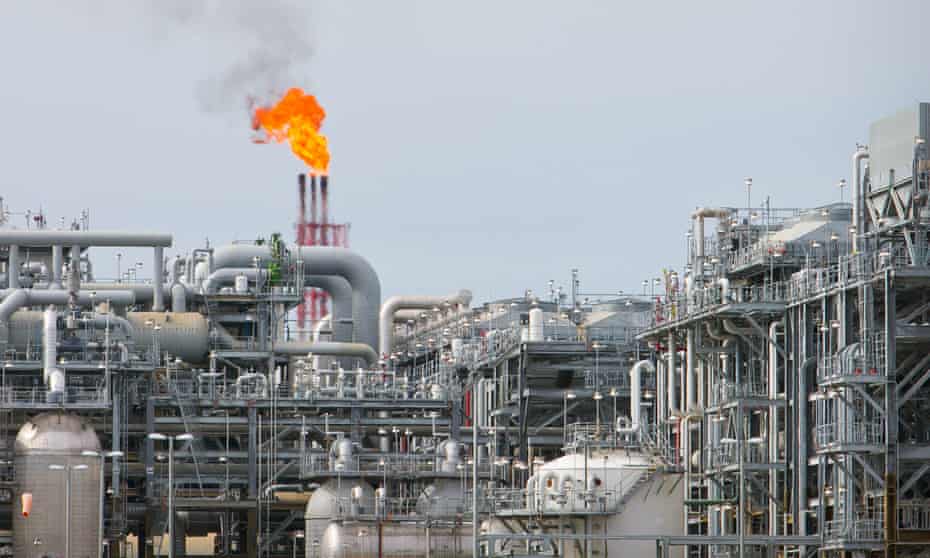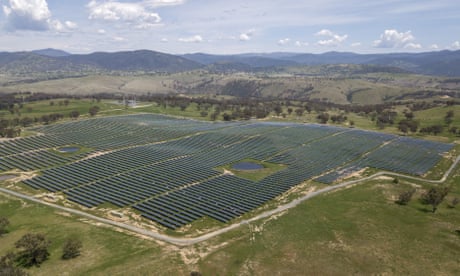Extract from The Guardian

There’s no shortage of coal or gas in Australia, there’s a shortage of generation capacity and the infrastructure to move energy to where it’s needed. Just as the sun doesn’t always shine and the wind doesn’t always blow, Australians have now learned the hard way that the coal trains don’t always run and the coal-fired power stations often break down.
In the last month, more than 30% of Australia’s coal output went offline as ageing infrastructure buckled under pressure and coal output hit record lows. Last year Queensland’s Callide coal power station exploded, causing blackouts from the New South Wales border to Cairns. In just the last seven days, there have been further coal outages in Victoria and Queensland.
Given that most of these stations were built before email was invented, it should hardly come as a surprise. Despite Taylor’s latest claim that clean energy advocates want to “ban the BBQ” – the reality is that ageing coal can’t keep the lights on.
The irony is that the high gas prices caused by the gas industry’s practice of charging Australians the world price of gas (no matter how much it actually costs to produce here in Australia) is doing more to drive investment in renewable energy and storage than anything Morrison ever did. Renewable energy with storage is not just cleaner and more reliable than gas and coal, it’s cheaper as well. The Coalition would embrace this free-market competition, if it weren’t captured by the gas industry.
The “Canberra bubble” is cold at this time of year, but thanks to the ACT’s farsighted policy of sourcing 100% of its electricity from renewable energy the average electricity bill in the nation’s capital will fall this year while other jurisdictions face eye-watering price rises of up to 140%. Who’d have thought that there would be benefits for citizens when their governments make long-term plans and stick to them?
The brutal truth is that there isn’t much the newly elected Labor government can do to increase the supply of electricity generation capacity in the coming months. While the gas industry is trying to exploit the crisis they caused by calling for rapid approvals for even more gas wells, the only short-term benefit of such approvals would be in the form of headlines suggesting the government is “doing something”. The previous government was a huge fan of these announcements and that’s a large reason why Australia is in this mess today.
While it would take years, at best, for new fossil fuel supply to come online, the diplomatic impact of approving more gas or coal projects would be instantaneous. If there is one thing our Pacific neighbours have said they fear most, it’s climate change. And if there’s one thing they want from a newly elected Australian government it’s a moratorium on new fossil fuel projects.
Morrison was masterful at using small announcements to conceal big problems. And while such an approach delivered him one unexpected election victory, it also delivered the subsequent decimation for his party and a mountain of unsolved problems for our country. The newly elected Labor government can’t be expected to deliver a magic fix for today’s energy prices, but the approach it adopts in the coming weeks will define it for years to come.

Fossil fuel photo opportunities will deliver nothing but raised expectations and future disappointments.
Admitting there’s no quick fix is crucial to solving the real problem. Past policy failures mean this winter will be expensive for Australians yet to transition away from gas and very profitable for those companies who export 80% of it.
The quicker Australia invests in renewables, storage and the transmission capacity to rapidly move electrons from where they are generated to where they are needed, the quicker electricity prices and Australia’s greenhouse gas emissions will fall.
Luckily for Labor there is one simple policy they can implement today that will help smooth the transition forward: a windfall gains tax on the extra gas profits that the Ukraine war is delivering to the companies exporting so much Australian gas overseas. Boris Johnson has just imposed one in the UK, countries like Norway have always had one, and were Australia to introduce one today it could spend billions on helping homes and businesses get off gas once and for all. If the British can impose a 25% tax on British Petroleum it’s hard to believe we can’t.
The fossil fuel industry has been lying to Australians for years about the amount of benefit we get from their plans and their profits. And now, in the middle of a crisis of their own creation, pretending the best way for us to help ourselves is to help them first. As Australians brace for a cold, expensive winter of discontent, it’s time to call BS on the gas industry.
The sooner Australia shifts away from producing and burning fossil fuels the sooner we will see cheap energy, improved relationships with the Pacific and a stable climate. Announceables, deflection and hot air were the Morrison mantra. Australians now deserve honest energy solutions.
No comments:
Post a Comment